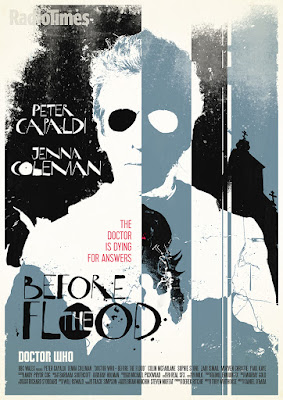The modern western is a fertile ground for writers to play around with morally ambiguous characters, and it was refreshing to see how deep “A Town Called Mercy” was willing to go in its exploration of morality, given that
Doctor Who remains family viewing. What was touted to viewers as some kind of shoot ‘em up romp, ended up a thoughtful riff on maybe a half a dozen concepts of different shapes and sizes:
High Noon, Leone’s spaghetti westerns,
High Plains Drifter,
Blade Runner,
Frankenstein,
The Terminator, and
Westworld all leaped to mind while taking in this clever amalgam of ideas. Yet for all its inspirations, “Mercy” was mostly just some excellent, thought-provoking
Doctor Who.
Rory: “The sign does say ‘Keep Out.’”
The Doctor: “I see ‘Keep Out’ signs as suggestions more than actual orders. Like ‘Dry Clean Only’!”“Mercy” writer Toby Whithouse penned the second season
Who tale “
School Reunion,” in which Lis Sladen’s Sarah Jane Smith came back to us. It was early days still, and he was working with an iconic figure, so it was easy to forgive some of that story’s weaknesses, particularly in regards to the batlike, shape-shifting Krillitane, who weren’t especially memorable villains. A couple years later, he unleashed what he’s perhaps best known for, the supernatural vampire/werewolf/ghost series,
Being Human.
Whithouse finally returned to the
Who fold during the last two seasons with “The God Complex,” a script that felt like it was maybe trying too hard, and the year before that, with “The Vampires of Venice,” a script that felt like it wasn’t trying quite hard enough. Aspects all of his Who scripts share, however, are complex, sympathetic villains next to complex, flawed portrayals of the Doctor. With “A Town Called Mercy,” Whithouse has done it again, and this time better than ever before.





